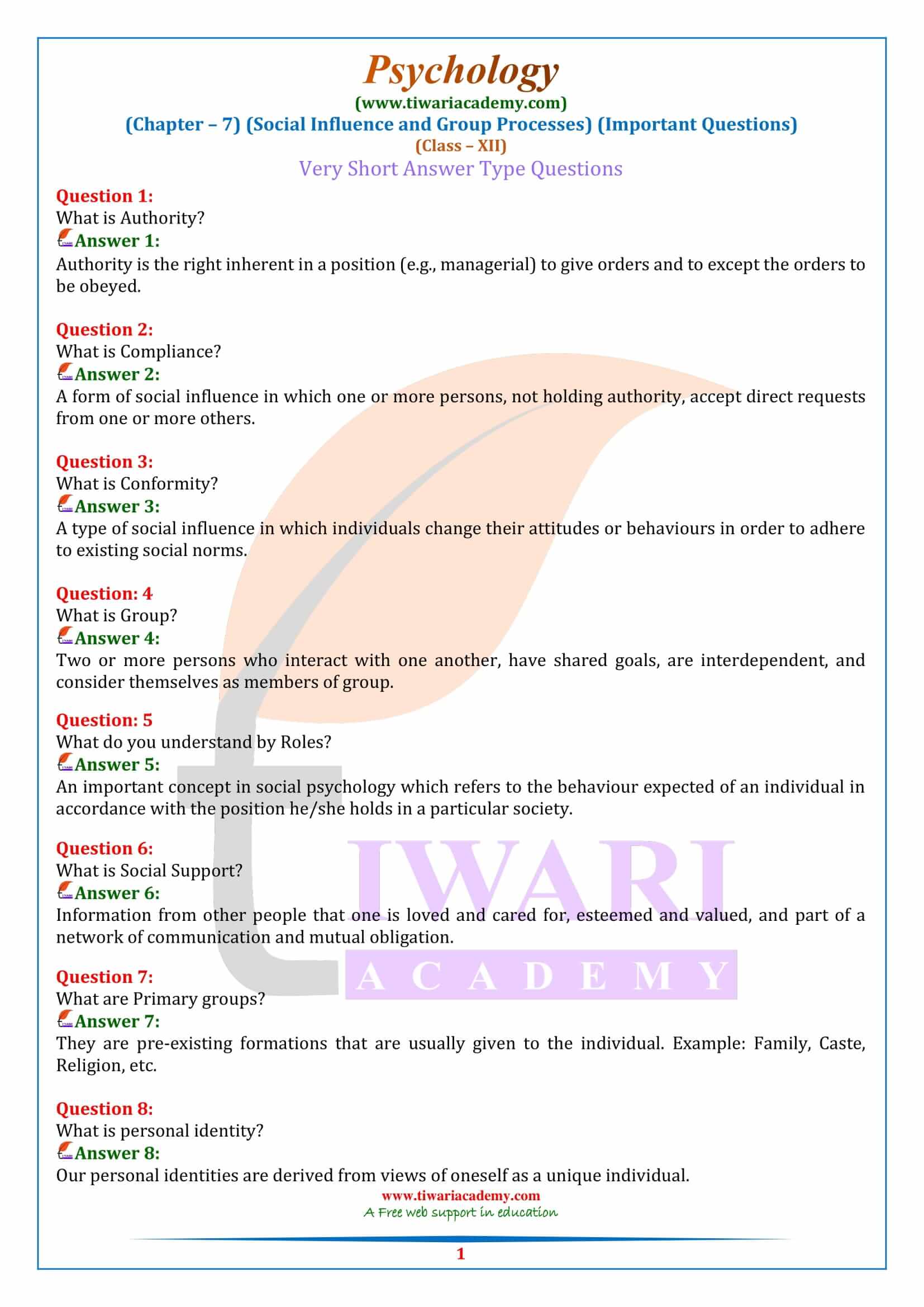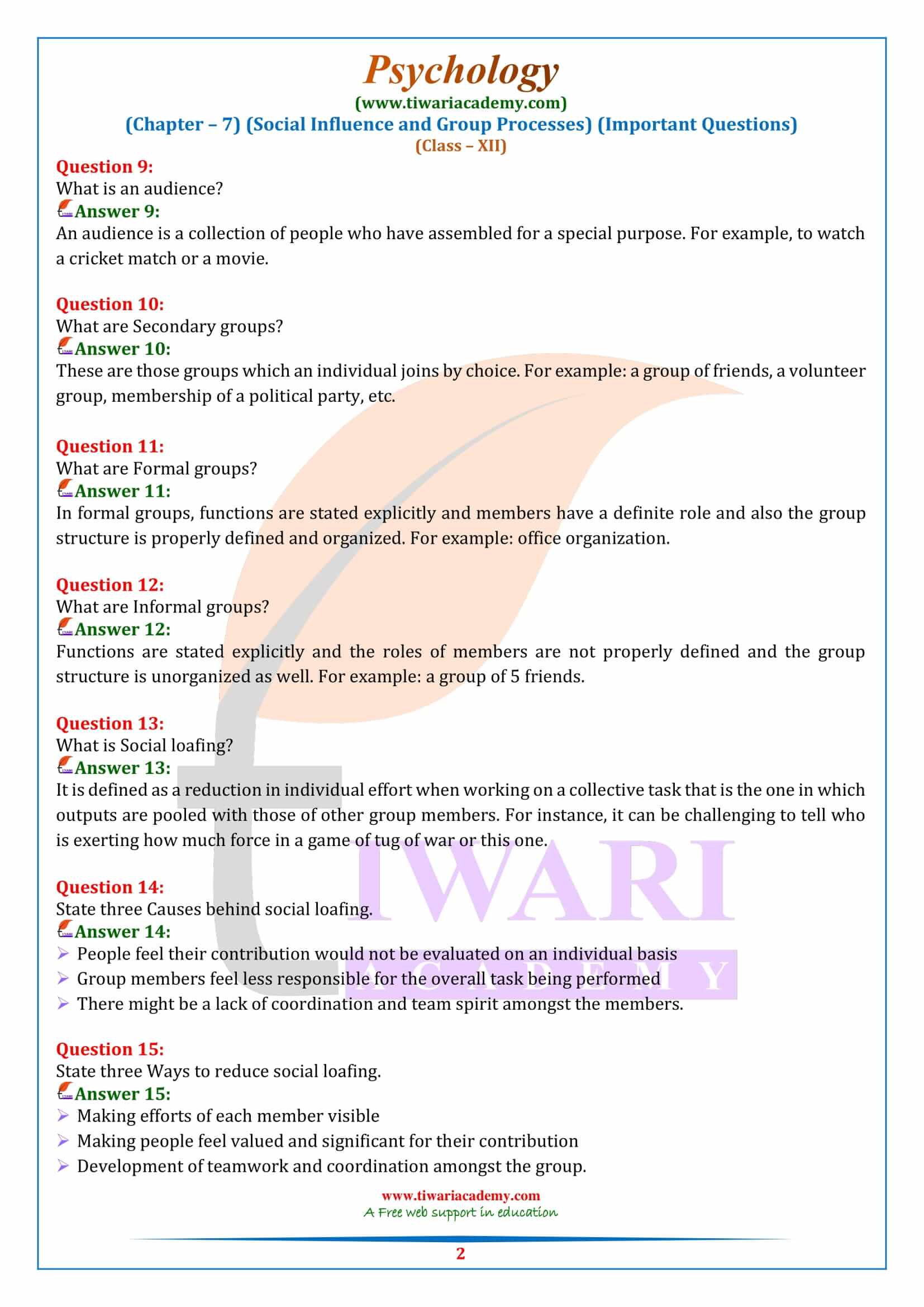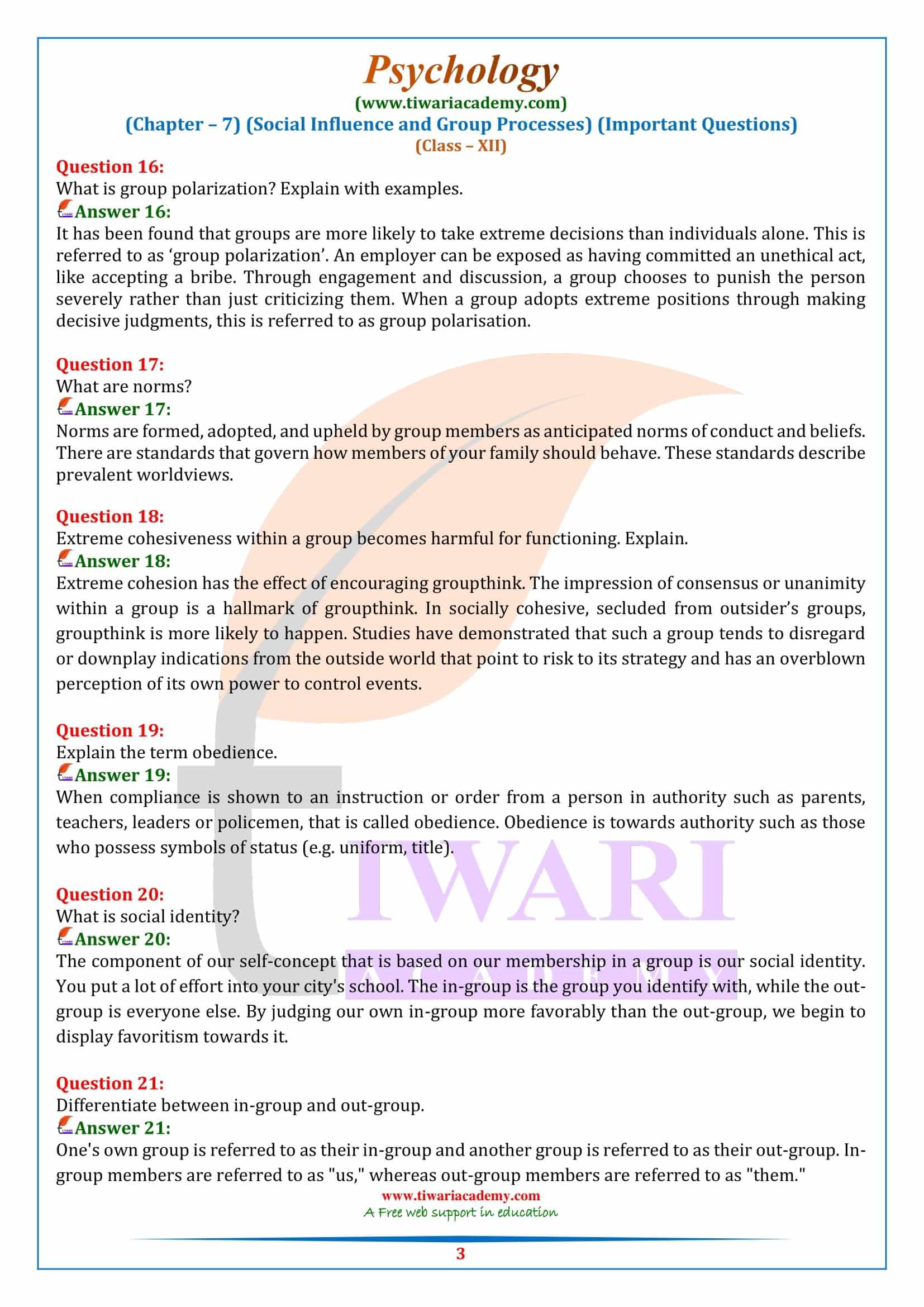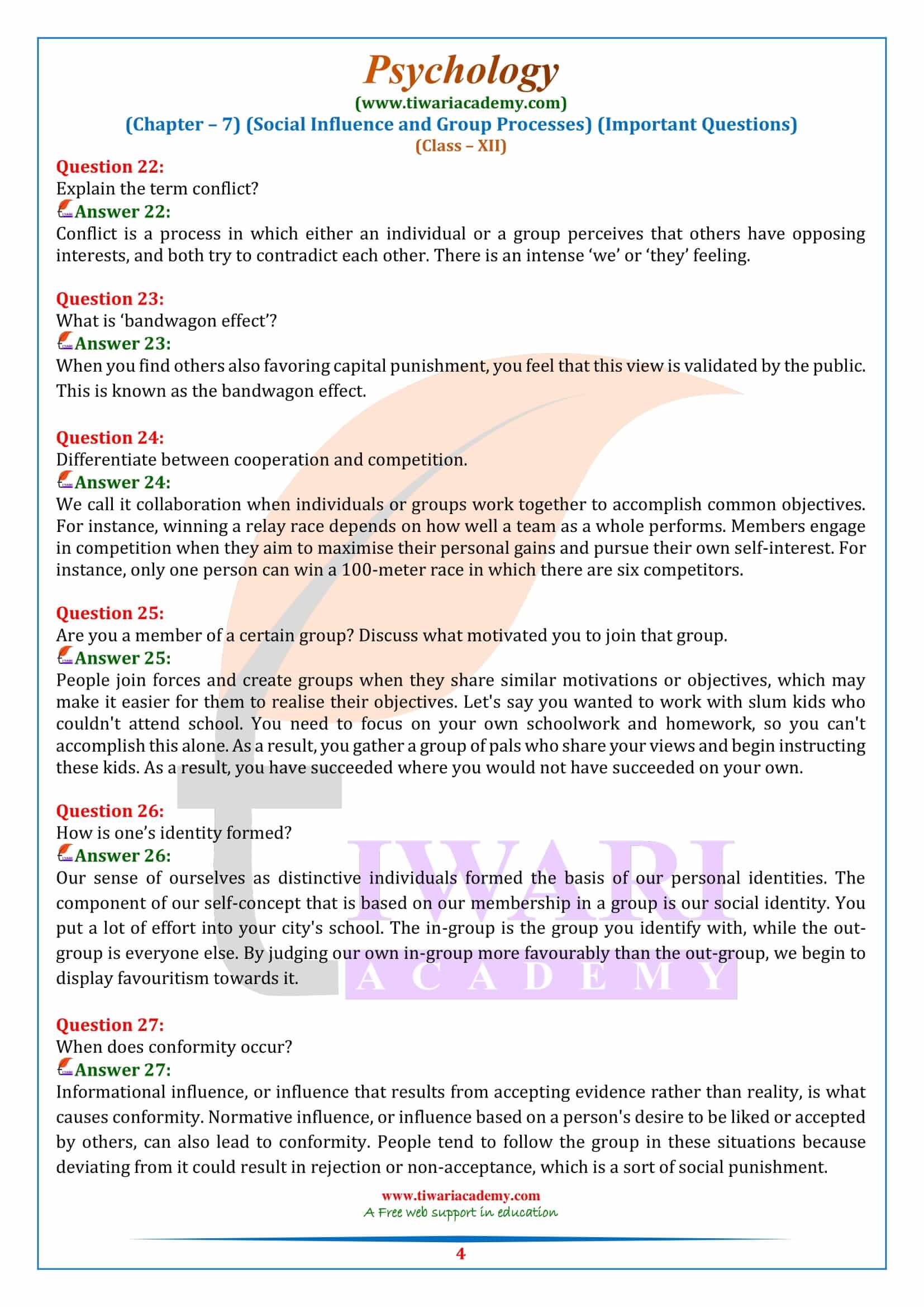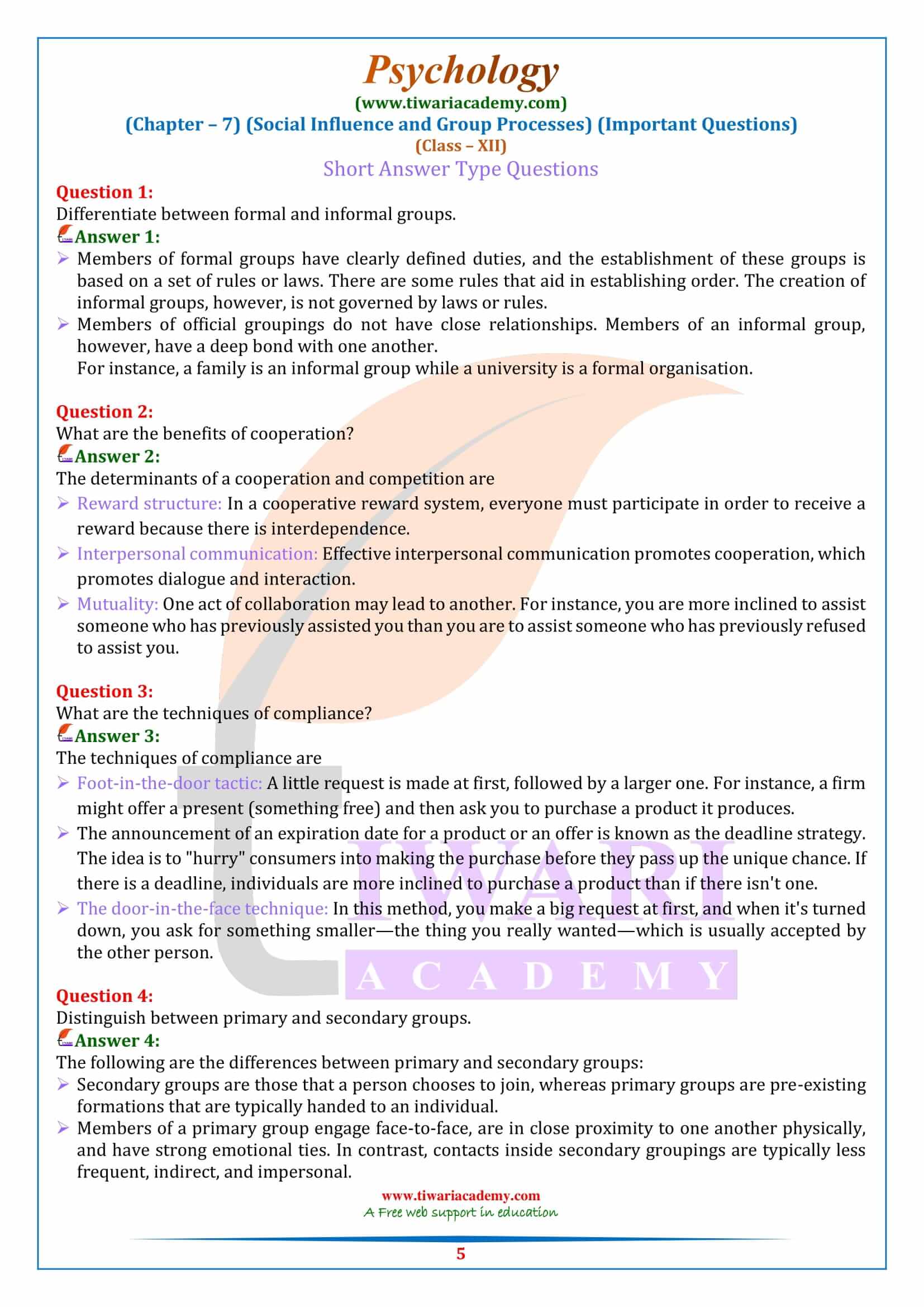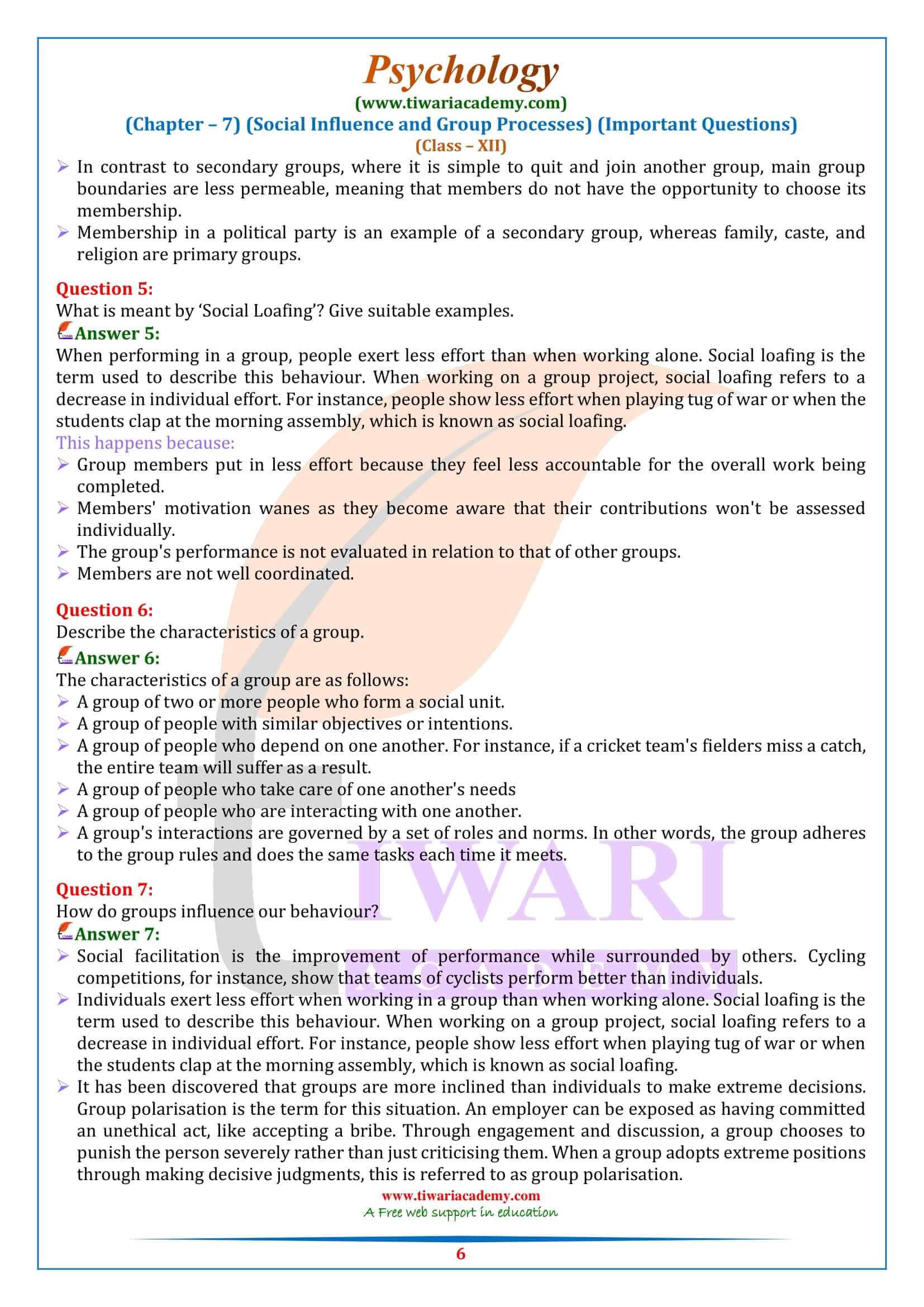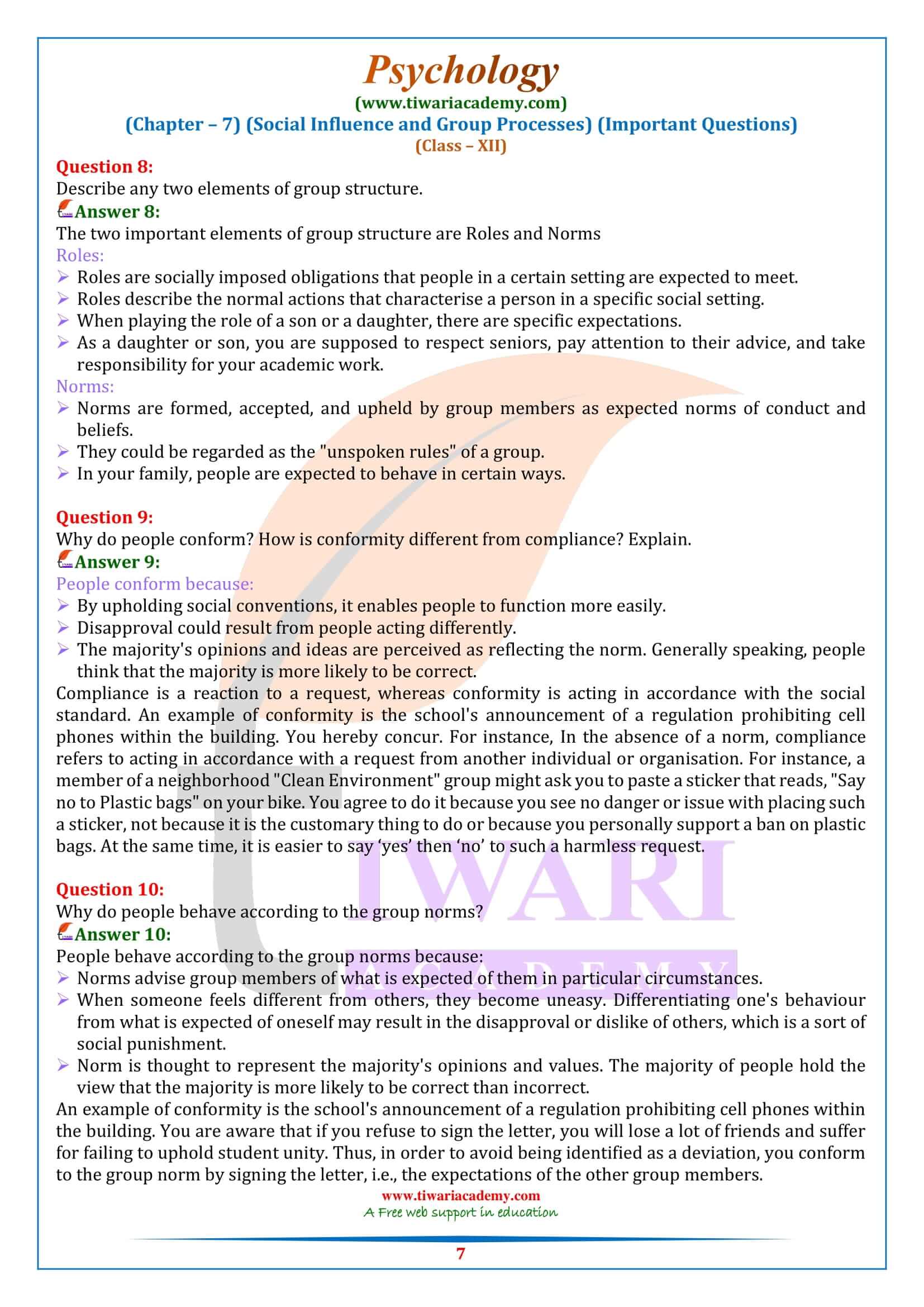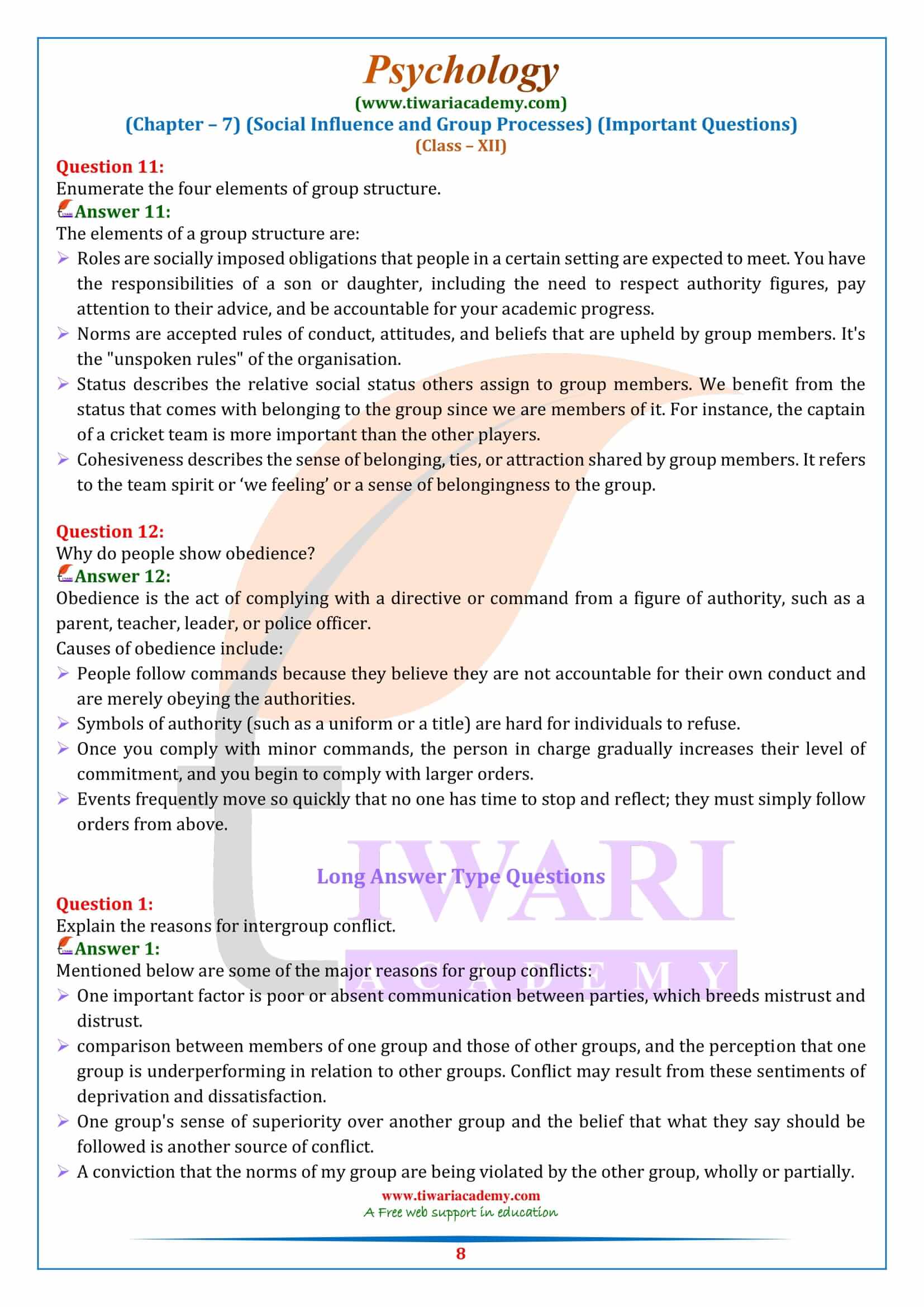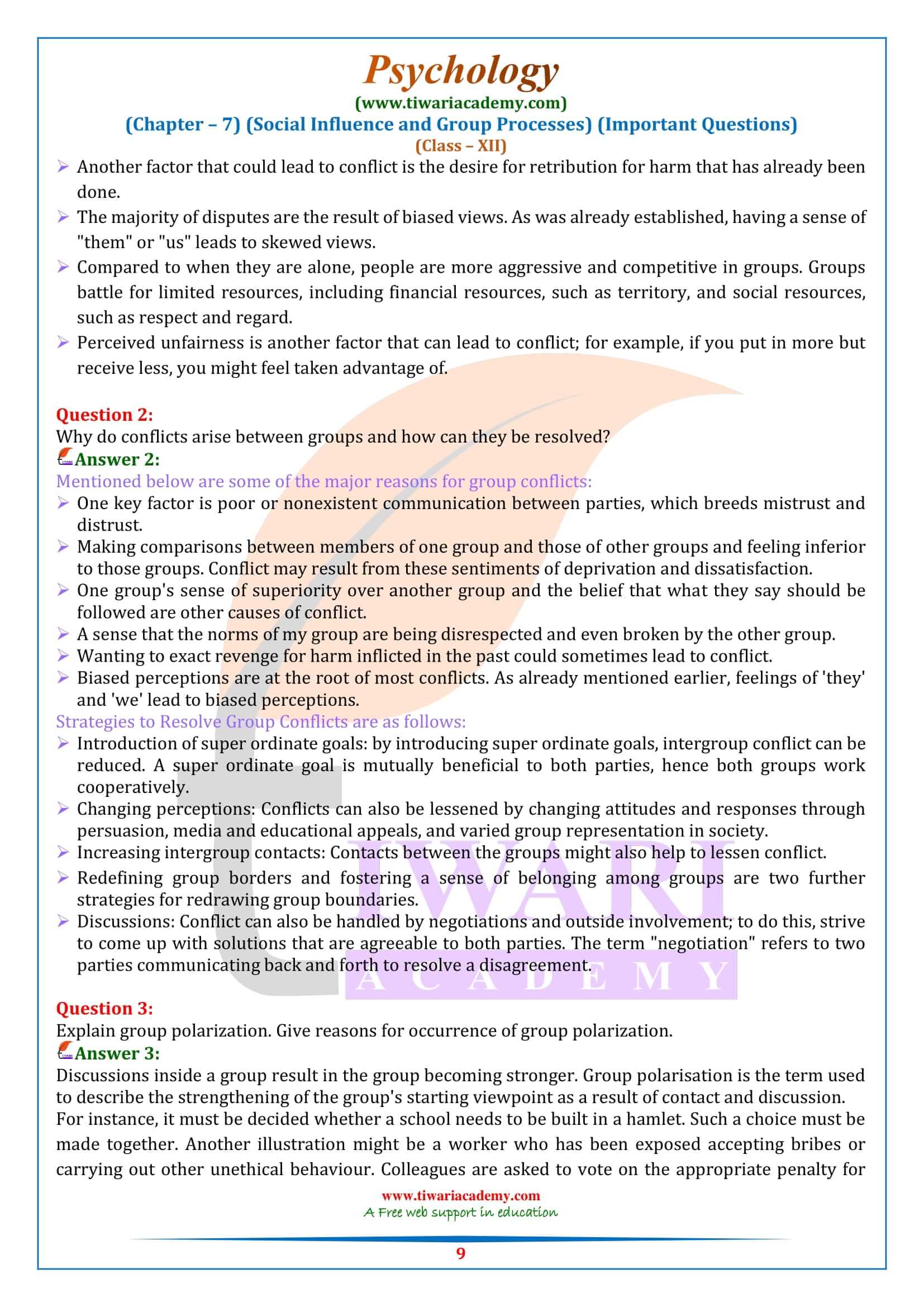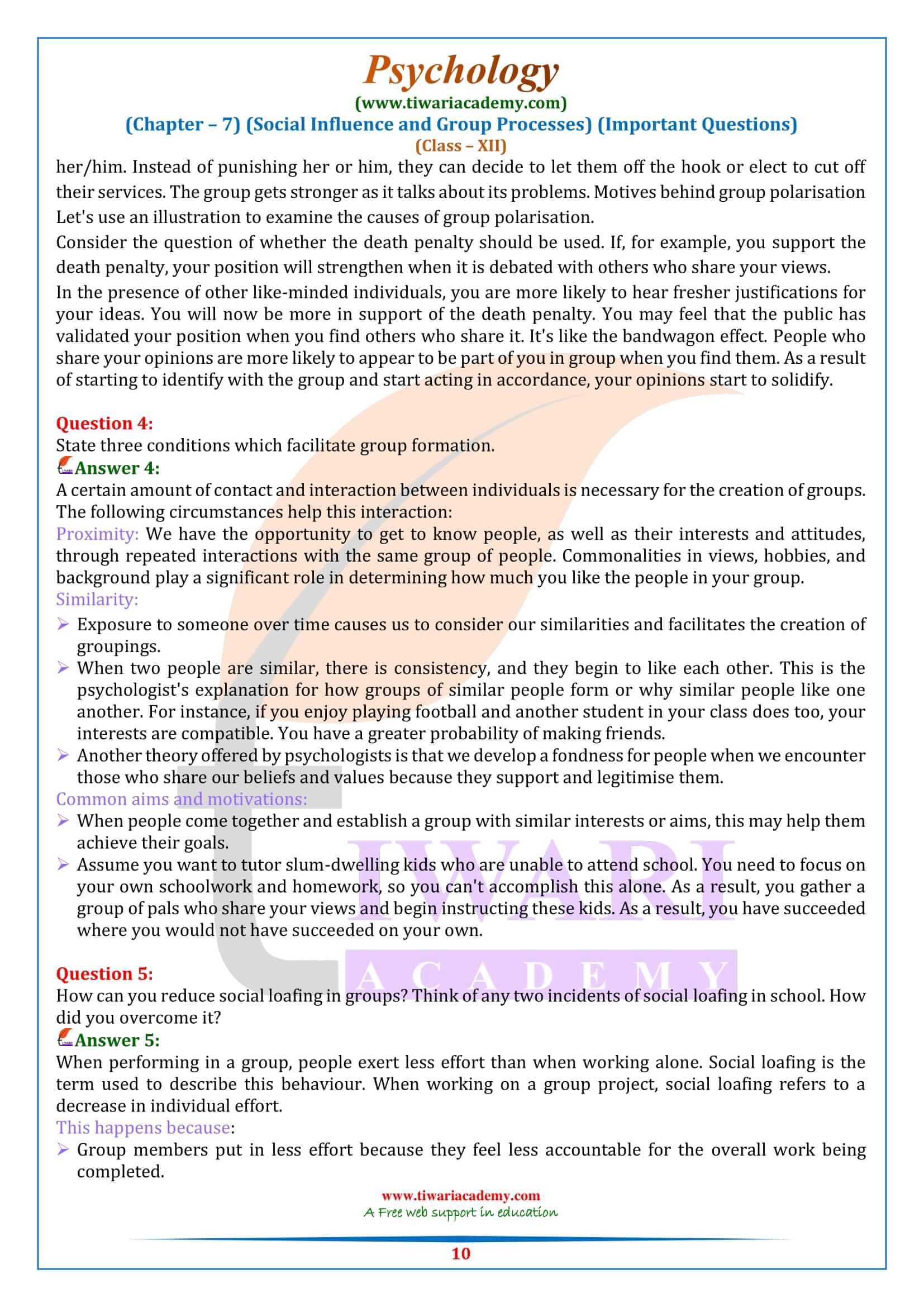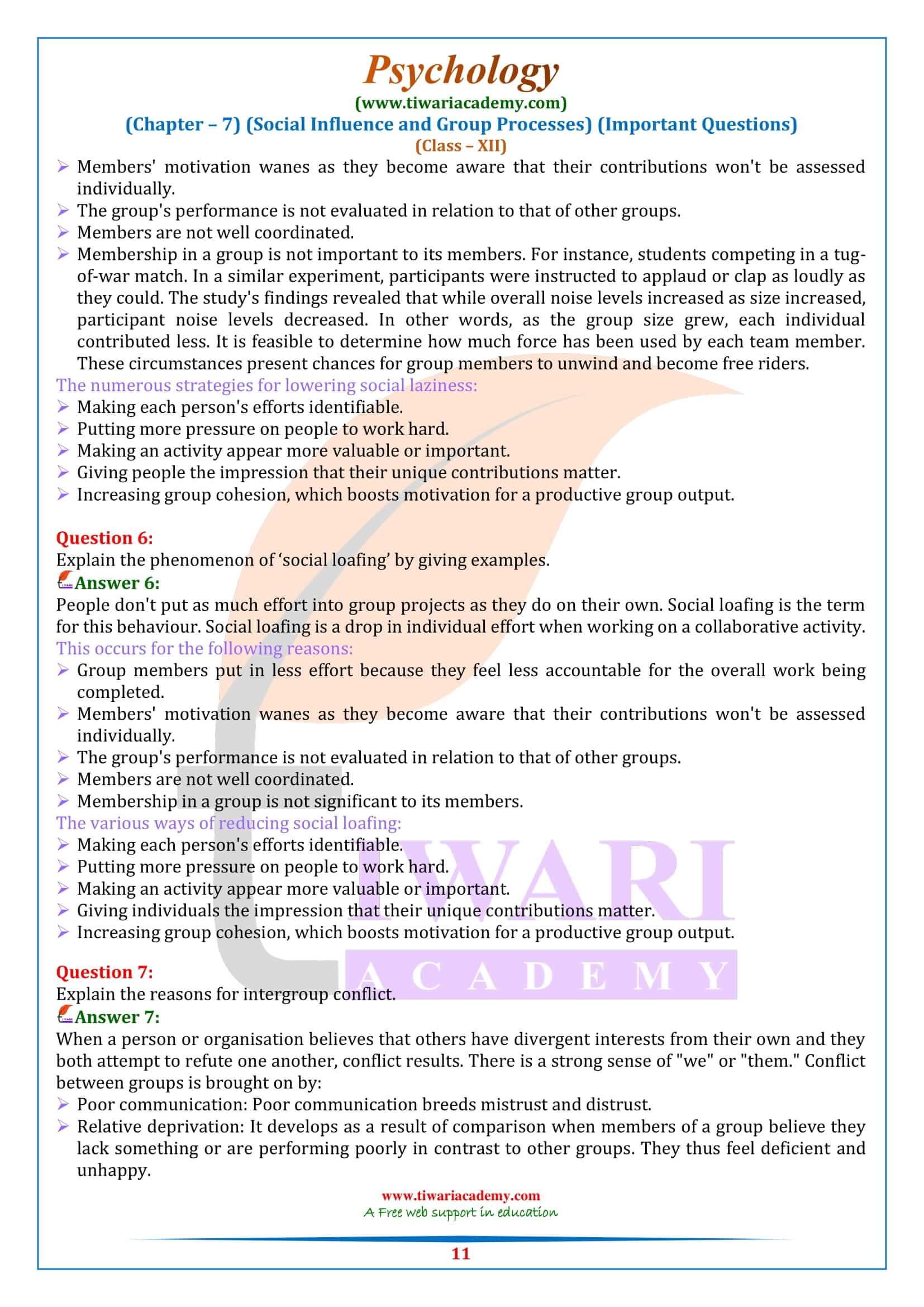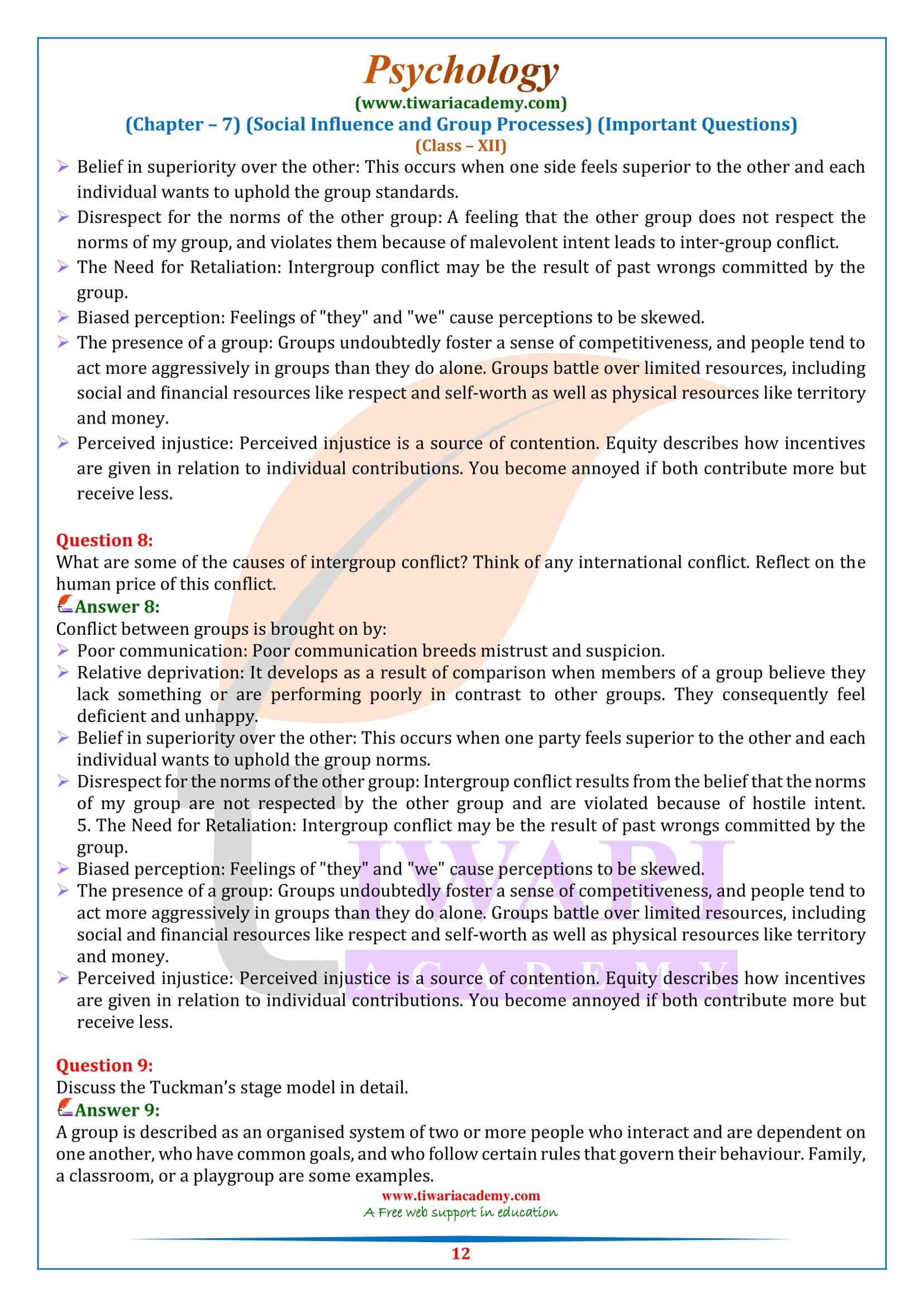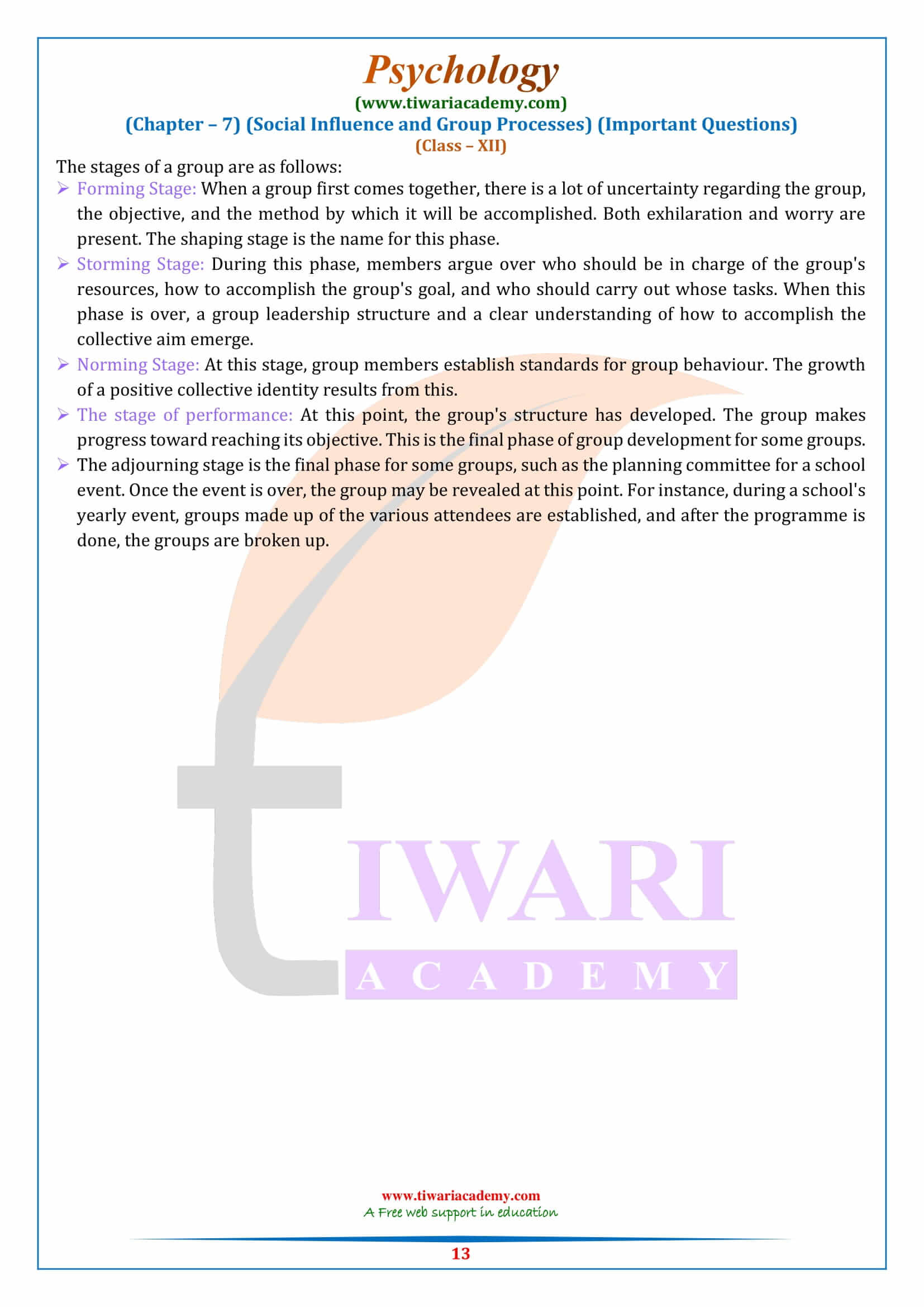Class 12 Psychology Chapter 7 Important Questions of Social Influence and Group Processes in English Medium updated for CBSE 2025-26 session. Students can prepare class 12 Psychology Chapter 7 through Extra Questions given here with answer and complete explanation.
Class 12 Psychology Chapter 7 Important Questions
Class 12 Psychology Chapter 7 Extra Questions Answers
What is Social loafing?
It is defined as a reduction in individual effort when working on a collective task that is the one in which outputs are pooled with those of other group members. For instance, it can be challenging to tell who is exerting how much force in a game of tug of war or this one.
What is group polarization? Explain with examples.
It has been found that groups are more likely to take extreme decisions than individuals alone. This is referred to as ‘group polarization’. An employer can be exposed as having committed an unethical act, like accepting a bribe. Through engagement and discussion, a group chooses to punish the person severely rather than just criticizing them. When a group adopts extreme positions through making decisive judgments, this is referred to as group polarisation.
Explain the term obedience.
When compliance is shown to an instruction or order from a person in authority such as parents, teachers, leaders or policemen, that is called obedience. Obedience is towards authority such as those who possess symbols of status (e.g. uniform, title).
Extreme cohesiveness within a group becomes harmful for functioning. Explain.
Extreme cohesion has the effect of encouraging group think. The impression of consensus or unanimity within a group is a hallmark of group think. In socially cohesive, secluded from outsider’s groups, group think is more likely to happen. Studies have demonstrated that such a group tends to disregard or downplay indications from the outside world that point to risk to its strategy and has an overblown perception of its own power to control events.
What is social identity?
The component of our self-concept that is based on our membership in a group is our social identity. You put a lot of effort into your city’s school. The in-group is the group you identify with, while the out-group is everyone else. By judging our own in-group more favorably than the out-group, we begin to display favoritism towards it.
Differentiate between cooperation and competition.
We call it collaboration when individuals or groups work together to accomplish common objectives. For instance, winning a relay race depends on how well a team as a whole performs. Members engage in competition when they aim to maximise their personal gains and pursue their own self-interest. For instance, only one person can win a 100-meter race in which there are six competitors.
Are you a member of a certain group? Discuss what motivated you to join that group.
People join forces and create groups when they share similar motivations or objectives, which may make it easier for them to realise their objectives. Let’s say you wanted to work with slum kids who couldn’t attend school. You need to focus on your own schoolwork and homework, so you can’t accomplish this alone. As a result, you gather a group of pals who share your views and begin instructing these kids. As a result, you have succeeded where you would not have succeeded on your own.
Differentiate between in-group and out-group.
One’s own group is referred to as their in-group and another group is referred to as their out-group. In-group members are referred to as “us,” whereas out-group members are referred to as “them.”
How is one’s identity formed?
Our sense of ourselves as distinctive individuals formed the basis of our personal identities. The component of our self-concept that is based on our membership in a group is our social identity. You put a lot of effort into your city’s school. The in-group is the group you identify with, while the out-group is everyone else. By judging our own in-group more favourably than the out-group, we begin to display favouritism towards it.
When does conformity occur?
Informational influence, or influence that results from accepting evidence rather than reality, is what causes conformity. Normative influence, or influence based on a person’s desire to be liked or accepted by others, can also lead to conformity. People tend to follow the group in these situations because deviating from it could result in rejection or non-acceptance, which is a sort of social punishment.
What are the benefits of cooperation?
The determinants of a cooperation and competition are
- Reward structure: In a cooperative reward system, everyone must participate in order to receive a reward because there is interdependence.
- Interpersonal communication: Effective interpersonal communication promotes cooperation, which promotes dialogue and interaction.
- Mutuality: One act of collaboration may lead to another. For instance, you are more inclined to assist someone who has previously assisted you than you are to assist someone who has previously refused to assist you.
